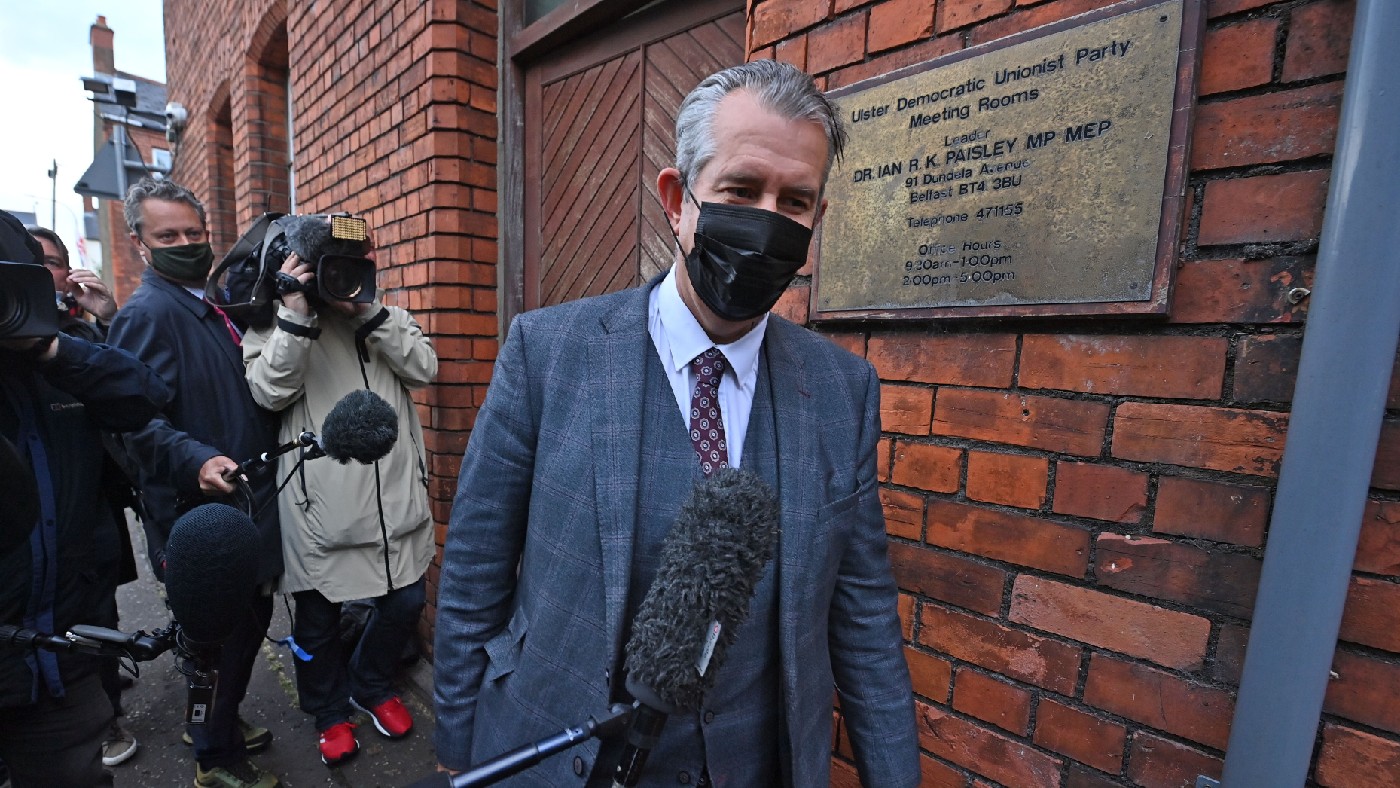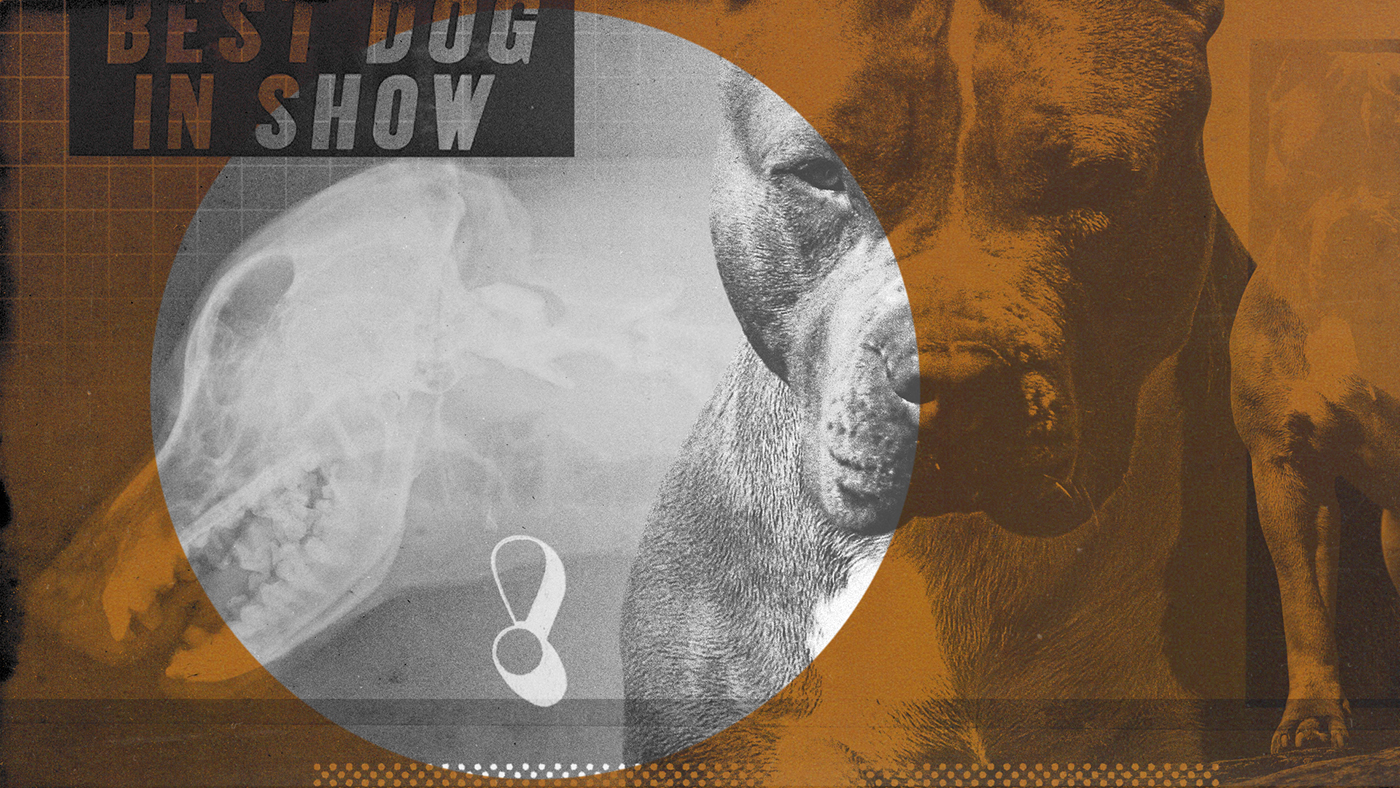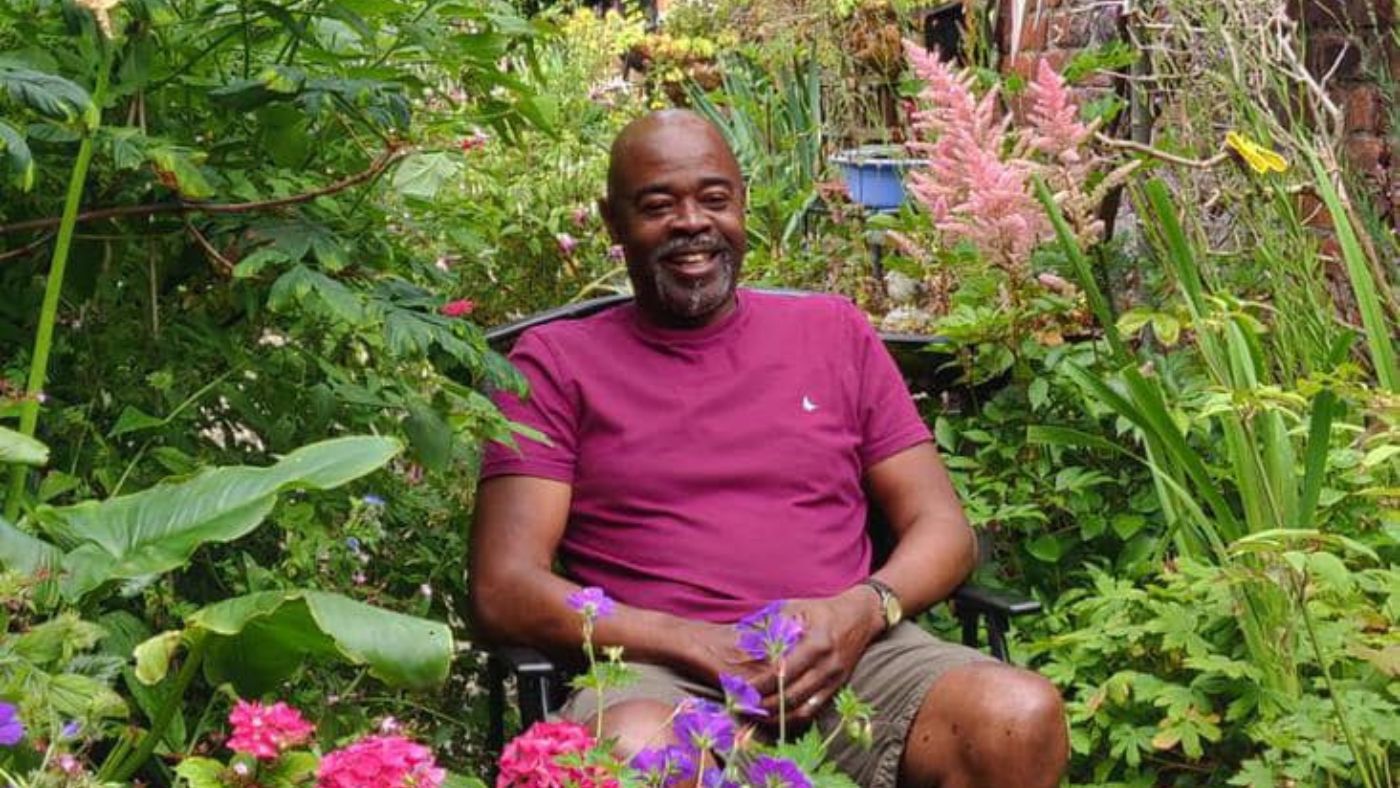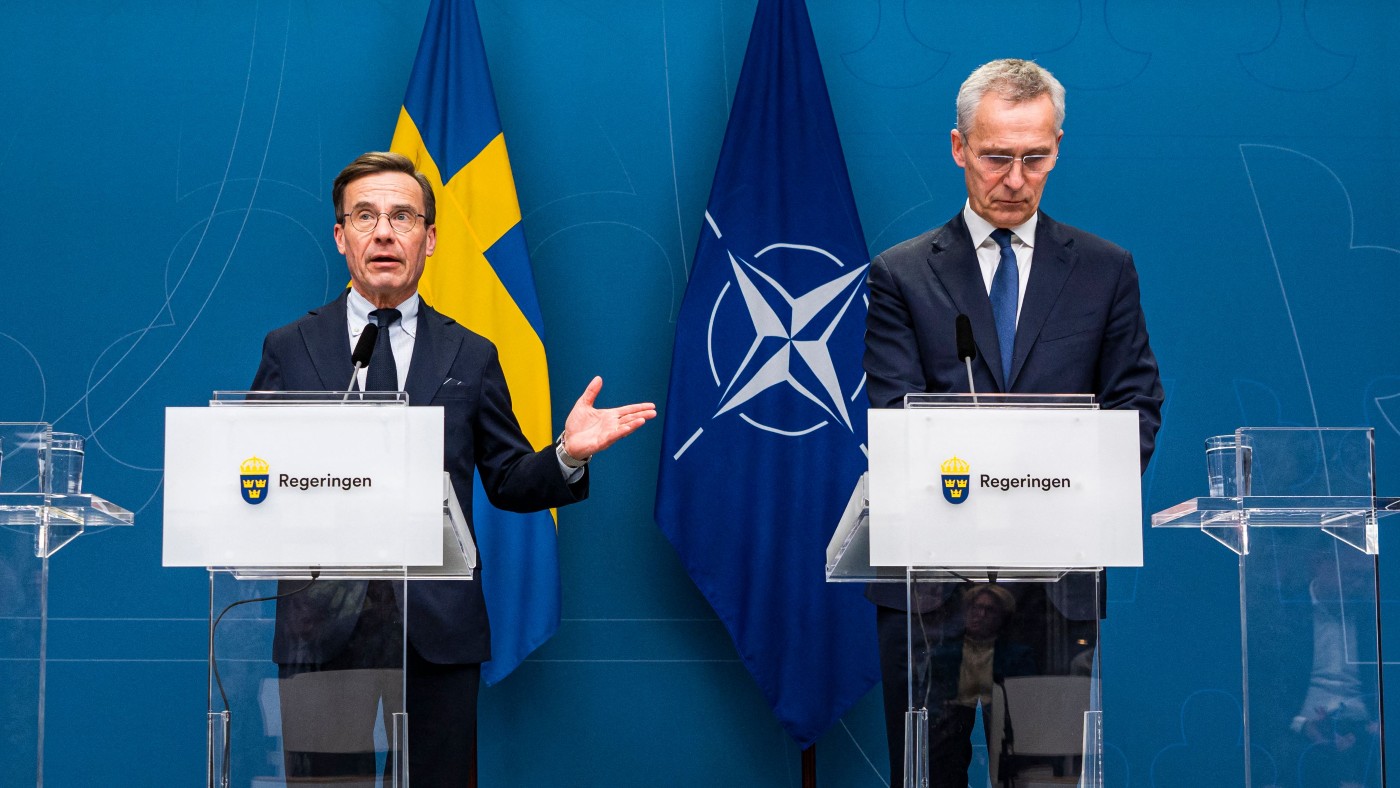‘Riding high in May, shot down in June’: the DUP implosion explained
The rule of Edwin Poots is now history, after only 21 days, following a revolt by the Democratic Unionist Party’s Assembly members and MPs

A free daily email with the biggest news stories of the day – and the best features from TheWeek.com
You are now subscribed
Your newsletter sign-up was successful
“Riding high in May, shot down in June.” That was the fate of Edwin Poots, short-lived leader of the Democratic Unionist Party, said Stephen Bush in the New Statesman. Poots himself played a major role in the internal coup that ousted Arlene Foster, the previous DUP leader and first minister. But his own rule is now history, after only 21 days, following a revolt by the party’s Assembly members and MPs.
The reason? They opposed his nomination of Paul Givan for first minister, and were enraged by the concessions Poots gave to their arch-rival Sinn Féin to get its support for Givan’s candidacy–including an agreement to pass laws promoting the Irish language.
“‘Crisis’ is a term that’s never far away in Northern Ireland,” said Sean O’Grady in The Independent. But the current situation looks ominous. The devolved Stormont executive is in danger of collapse (again). If it does, Northern Ireland could become “the most undemocratic state in Europe, or at least this side of Belarus”.
The Week
Escape your echo chamber. Get the facts behind the news, plus analysis from multiple perspectives.

Sign up for The Week's Free Newsletters
From our morning news briefing to a weekly Good News Newsletter, get the best of The Week delivered directly to your inbox.
From our morning news briefing to a weekly Good News Newsletter, get the best of The Week delivered directly to your inbox.
Its people would be governed by the Northern Ireland Office’s “civil servants and ministers” in London – while its trading rules and food regulations are already set by Brussels, courtesy of the Northern Ireland Protocol agreed by Boris Johnson. The average voter would have “next to no say on what happens to them”.
The last time the Stormont Assembly was brought down, by Sinn Féin in January 2017, it left Northern Ireland without a government for three years, said Sam McBride in the News Letter. Now the DUP’s new leader, the Lagan Valley MP Sir Jeffrey Donaldson, has reportedly vowed to pull his party out of the Assembly unless the British Government gets rid of “barriers to trade” and respects “the Act of Union”.
It may be possible to take the heat out of the Protocol row, said The Economist. Temporary compromises from both the UK and EU could ease the passage of goods to Northern Ireland. But the “sense of betrayal” among unionists is strong: Johnson vowed that there would be a trade border in the Irish Sea “over my dead body”; then he broke that promise. Loyalist paramilitary groups have raised the stakes by demanding the Protocol is “removed”, said Newton Emerson in The Irish Times. That bodes ill for the summer, “as younger, hotter heads muscle in”.
The DUP used to run a formidably tight ship, said Alex Kane in the Irish Independent. It has been “truly, almost epically, astonishing” to watch it implode over Brexit – which of course it campaigned for – in the centenary year of Northern Ireland’s creation. Opinion polls now show a “massive” drop in support for the DUP, and a rise in support for the moderate Ulster Unionist Party and the hard-line Traditional Unionist Voice.
A free daily email with the biggest news stories of the day – and the best features from TheWeek.com
A splintered loyalist vote could mean that the office of first minister goes to Sinn Féin after the next Stormont election. Things have seldom been so dire for unionists, who believe themselves to be “hanging on by just a few fingertips to the window ledge of the Union”.
-
 ‘This is something that happens all too often’
‘This is something that happens all too often’Instant Opinion Opinion, comment and editorials of the day
-
 House votes to end Trump’s Canada tariffs
House votes to end Trump’s Canada tariffsSpeed Read Six Republicans joined with Democrats to repeal the president’s tariffs
-
 Bondi, Democrats clash over Epstein in hearing
Bondi, Democrats clash over Epstein in hearingSpeed Read Attorney General Pam Bondi ignored survivors of convicted sex offender Jeffrey Epstein and demanded that Democrats apologize to Trump
-
 Earring lost at sea returned to fisherman after 23 years
Earring lost at sea returned to fisherman after 23 yearsfeature Good news stories from the past seven days
-
 Bully XL dogs: should they be banned?
Bully XL dogs: should they be banned?Talking Point Goverment under pressure to prohibit breed blamed for series of fatal attacks
-
 Netanyahu’s reforms: an existential threat to Israel?
Netanyahu’s reforms: an existential threat to Israel?feature The nation is divided over controversial move depriving Israel’s supreme court of the right to override government decisions
-
 Farmer plants 1.2m sunflowers as present for his wife
Farmer plants 1.2m sunflowers as present for his wifefeature Good news stories from the past seven days
-
 EU-Tunisia agreement: a ‘dangerous’ deal to curb migration?
EU-Tunisia agreement: a ‘dangerous’ deal to curb migration?feature Brussels has pledged to give €100m to Tunisia to crack down on people smuggling and strengthen its borders
-
 Manchester alleyway transformed into a plant-filled haven
Manchester alleyway transformed into a plant-filled havenfeature Good news stories from the past seven days
-
 China’s ‘sluggish’ economy: squeezing the middle classes
China’s ‘sluggish’ economy: squeezing the middle classesfeature Reports of the death of the Chinese economy may be greatly exaggerated say analysts
-
 Non-aligned no longer: Sweden embraces Nato
Non-aligned no longer: Sweden embraces Natofeature While Swedes believe it will make them safer Turkey’s grip over the alliance worries some